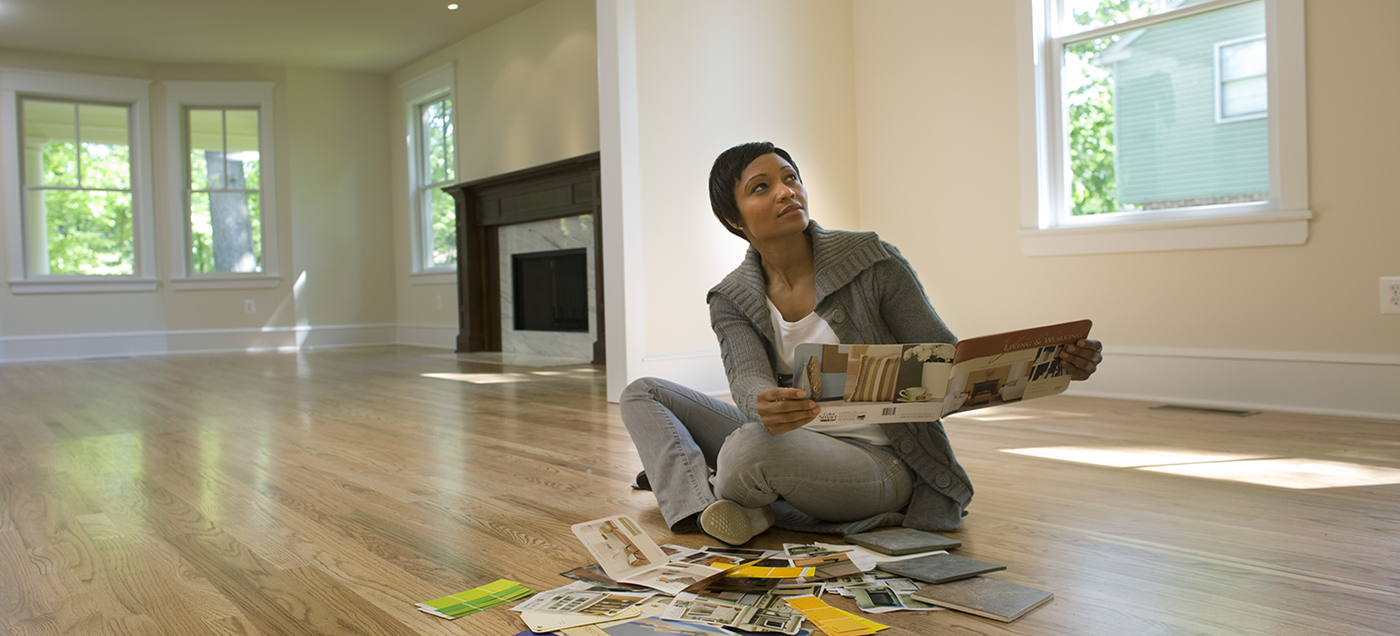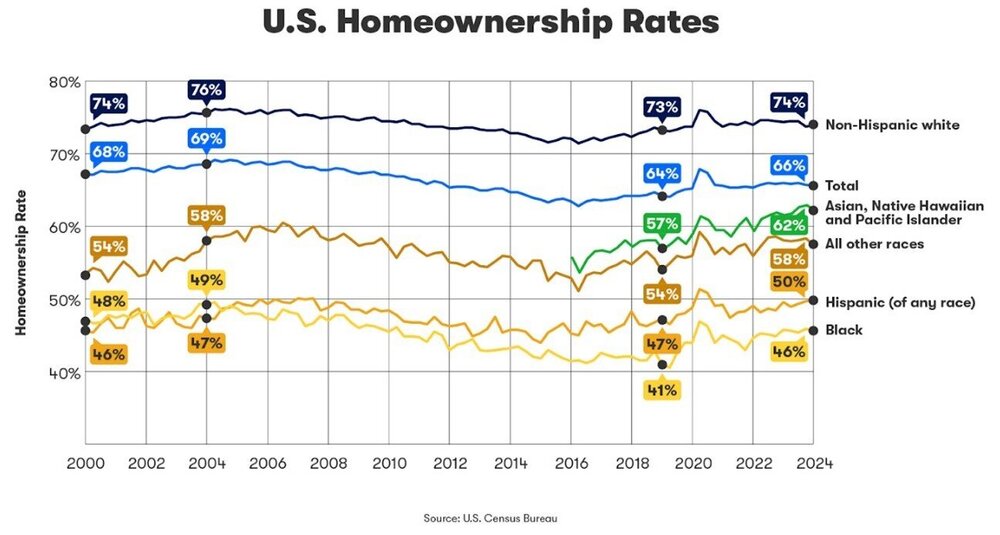Residential Real Estate News

Black Homeownership Rises in America
Residential News » Atlanta Edition | By WPJ Staff | May 30, 2024 8:45 AM ET
But hasn't returned to Black ownership highpoint levels of 2004
Based on new data from Zillow, the U.S. homeownership rate for Black households has grown faster than average since 2019, but it's still below the high-water mark reached in 2004, before the Great Recession.
Insufficient credit is holding many Black households back from homeownership. Nearly 1 in 4 mortgage applications from Black borrowers -- 24% -- are denied, according to 2023 Home Mortgage Disclosure Act data, which can be explored on this interactive Zillow® dashboard on housing inequality.
That's almost twice the rate of all applicants (12.6%) and far higher than the 1-in-10 denial rate for white applicants1. Of those mortgages denied Black applicants, more than 43% are turned down due to credit history - the most common reason given. That's a higher rate than in past years and also when compared to 32% of denials for white applicants.
"While discriminatory policies like redlining have long been outlawed, the damage from these historic practices is still felt today. Many communities once barred from accessing credit are now finance deserts, with few traditional financial institutions, making it harder to build credit and buy a house," said Zillow senior economist Orphe Divounguy. "That's why it's so important to expand credit access. Allowing rent payments to count in credit scores is one example of how to move the industry forward."
Today, nearly 46% of Black households own their home, an improvement from a low point of 43% in 2019, but still down from a 49.7% peak ownership rate reached in 2004, before the Great Recession, and far off from the 74% rate for white households. Many Black households have been left out of major wealth gains during that time. Since the Black homeownership rate peaked in 2004, U.S. home values have more than doubled, rising 117%.
Although the gap between white homeownership rates and those of Black and Hispanic households has diminished since 2019, the deficit is still large and contributes to vast inequalities in wealth.
The single largest asset for most homeowners is their house, and it's a major means of building wealth and passing it on to the next generation. Zillow Research found a $3 trillion wealth gap between Black and white families. Nearly 40% of the gap -- $1.18 trillion -- could be credited to disparities in home values and ownership.
Despite rising faster than average since 2019, Black-owned home values are still far lower than average. If the typical home was worth $1, Black-owned homes would be worth 85 cents and white-owned homes worth $1.03.
Sign Up Free | The WPJ Weekly Newsletter
Relevant real estate news.
Actionable market intelligence.
Right to your inbox every week.
Real Estate Listings Showcase
Related News Stories
Residential Real Estate Headlines
- More Americans Opting for Renting Over Homeownership in 2024
- BLOCKTITLE Global Property Tokenization Platform Announced
- Small Investors Quietly Reshaping the U.S. Housing Market in Late 2024
- Greater Miami Overall Residential Sales Dip 9 Percent in November
- U.S. Home Sales Enjoy Largest Annual Increase in 3 Years Post Presidential Election
- U.S. Housing Industry Reacts to the Federal Reserve's Late 2024 Rate Cut
- U.S. Home Builders Express Optimism for 2025
- Older Americans More Likely to Buy Disaster-Prone Homes
- NAR's 10 Top U.S. Housing Markets for 2025 Revealed
- U.S. Mortgage Delinquencies Continue to Rise in September
- U.S. Mortgage Rates Tick Down in Early December
- Post Trump Election, U.S. Homebuyer Sentiment Hits 3-Year High in November
- Global Listings Aims to Become the Future 'Amazon of Real Estate' Shopping Platform
- Greater Las Vegas Home Sales Jump 15 Percent in November
- Ultra Luxury Home Sales Globally Experience Slowdown in Q3
- World Property Exchange Announces Development Plan
- Hong Kong Housing Market to Reach Equilibrium in Late 2025
- Construction Job Openings in U.S. Down 40 Percent Annually in October
- U.S. Mortgage Applications Increase in Late October
- World Property Markets, World Property Media to Commence Industry Joint-Venture Funding Rounds in 2025
- New Home Sales Hit 2 Year Low in America
- U.S. Pending Home Sales Increase for Third Consecutive Month in October
- Pandemic-led Residential Rent Boom is Now Fizzling in the U.S.
- Emerging Global Real Estate Streamer WPC TV Expands Video Programming Lineup
- 1 in 5 Renters in America Entire Paycheck Used to Pay Monthly Rent in 2024
- U.S. Home Sales Jump 3.4 Percent in October
- Home Buyers Negotiation Power Grows Amid Cooling U.S. Market
- Canadian Home Sales Surge in October, Reaching a Two-Year High
- Greater Orlando Area Home Sales Continue to Slide in October
- U.S. Mortgage Credit Availability Increased in October
- U.S. Mortgage Rates Remain Stubbornly High Post Election, Rate Cuts
- Construction Input Prices Continue to Rise in October
- BETTER MLS: A New Agent and Broker Owned National Listings Platform Announced
- Home Prices Rise in 87 Percent of U.S. Metros in Q3
- Caribbean Islands Enjoying a New Era of Luxury Property Developments
- The World's First 'Global Listings Service' Announced
- Agent Commission Rates Continue to Slip Post NAR Settlement
- Market Share of First Time Home Buyers Hit Historic Low in U.S.
- Greater Palm Beach Area Residential Sales Drop 20 Percent Annually in September
- Mortgage Applications in U.S. Dip in Late October






